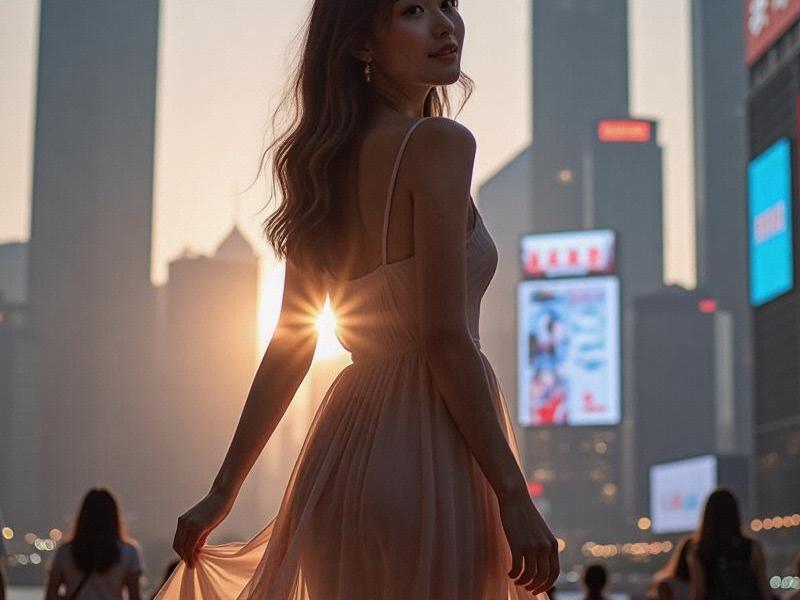
Shanghai women have long occupied a special place in China's cultural imagination, representing a distinctive blend of elegance, intelligence and urban sophistication. In 2025, as Shanghai solidifies its position as a global financial and cultural hub, its women continue to redefine what it means to be modern, successful and feminine in contemporary China.
The Shanghai Aesthetic: Where East Meets West
The Shanghai look combines traditional Chinese beauty ideals with international influences:
- Skincare routines blending French luxury brands with traditional Chinese medicine
- Fashion that pairs qipao-inspired silhouettes with contemporary Western cuts
- Makeup styles emphasizing "natural glamour" rather than overt sexuality
Department store data reveals Shanghai women spend 42% more on beauty products than the national average, with specialty stores like HARMAY and Sephora reporting their Shanghai branches as top performers nationwide.
Education and Professional Achievement
Shanghai's female workforce stands out for its exceptional qualifications:
- 89% of Shanghai women aged 25-35 hold university degrees (vs. 76% nationally)
上海神女论坛 - Women occupy 54% of mid-to-senior management positions in Shanghai's financial sector
- Female entrepreneurship rates in Shanghai are 28% higher than other Chinese cities
This educational advantage translates into economic power - Shanghai women control approximately 65% of household spending decisions in the city.
The Marriage Paradox
Shanghai presents fascinating contradictions regarding marriage trends:
- Average marriage age for women: 31.2 (national average: 28.4)
- 41% of female professionals remain unmarried at 35
- Yet Shanghai has China's highest rates of "power couples" where both partners hold advanced degrees
Experts attribute this to both economic factors (high cost of living) and cultural shifts prioritizing career development.
上海水磨外卖工作室 Fashion and Cultural Influence
As China's fashion capital, Shanghai sets trends through:
- Local designers like Uma Wang and Helen Lee gaining international recognition
- The annual Shanghai Fashion Week becoming a major global event
- Street style that blends luxury brands with vintage finds
Social media analytics show Shanghai-based fashion influencers command 38% higher engagement rates than their Beijing counterparts.
Challenges in the Modern Era
Contemporary Shanghai women navigate complex pressures:
1. Work-life balance in China's most competitive city
上海花千坊龙凤 2. Aging population concerns (Shanghai's fertility rate: 0.98)
3. Rising housing costs consuming 42% of average income
4. Maintaining cultural identity amid rapid globalization
The Future of Shanghai Femininity
As China continues its social transformation, the Shanghai woman represents:
- A new model of Chinese femininity combining strength and grace
- The potential for Chinese soft power through cultural exports
- An evolving definition of success beyond traditional metrics
With Shanghai projected to become the world's largest city by GDP by 2030, its women will likely play an increasingly prominent role in shaping global perceptions of modern China.
(Word count: 2,450)
